Saturday Commentary and Review #179
Trump Is Not the "End of Liberalism", Ending the War in Ukraine, European Industry Getting Ruined By US Diktaks, Germany's Failing Economic Model , When Airlines Vanish
Every weekend (almost) I share five articles/essays/reports with you. I select these over the course of the week because they are either insightful, informative, interesting, important, or a combination of the above.
I am thankful that the readers of this Substack are not unanimous in their opinions when it comes to the most lively topics that are discussed here, as there are few things that I find more boring than an echo chamber. This is not an endorsement of a free-for-all mudslinging match, but is a thank you to those that do challenge myself and others here with thoughtful comments. If you can’t test your priors, you will eventually get lazy, and even worse, grow out of touch.
Donald Trump’s victory one week ago today is still being digested by both Americans and non-Americans. Expectations are high in both the negative and the positive sense as to what will result from his second term in office. He is no longer an unknown quantity, and he has experience under his belt, unlike 2017. As of this moment, he quickly discarded both Mike Pompeo and Nikki Haley from the pool of potential high-level appointments to his team. This is a great sign. However, there are reports that he has settled on Marco Rubio as his desired Secretary of State. This is a bad sign (and is something that we will discuss later).
Trump has already outlined much of what he intends to do while in office, with migration being the hottest and most popular issue. He has also indicated a desire to engage in a root-and-branch reform of the federal bureaucracy, which is a very, very tall order to say the least. The agenda is very ambitious, but expectations must be tempered because:
the US system is based on compromise
you need full party support in Congress to get things done, and as of present, the GOP does not equate to #MAGA
the clock is already ticking
he has a history of making bad choices
The above is not an endorsement of his entire agenda, but I will admit to liking quite a lot of it. I will continue to do my best and hold as closely to objectivity over the course of this next administration while discussing it here. Suffice it to say that I believe that foreign policy will be by far the most difficult area to sort out, as it was precisely the fear around what he would do in 2017 that led to the years-long public meltdown in media that helped derail his first term.
Many of you reading this do not support him, which is fine. Many of you who do support him are not expecting much to come from his second go at it, which is also fine. He is returning to the most important job in the world, and so, so much will be resting on his shoulders.
I waited to put out this SCR because I wanted to find an article or essay to best riff off of last week’s results, one that would conform to at least one of the themes of this Substack. The best option was published over the weekend, one in which Francis Fukuyama argues that Biden, not Trump, is the anomaly here, because Americans overwhelmingly voted for The Donald, and their votes could see an end to both America’s liberalism, and to the liberal international order:
But the significance of the election extends way beyond these specific issues, and represents a decisive rejection by American voters of liberalism and the particular way that the understanding of a “free society” has evolved since the 1980s.
When Trump was first elected in 2016, it was easy to believe that this event was an aberration. He was running against a weak opponent who didn’t take him seriously, and in any case Trump didn’t win the popular vote. When Biden won the White House four years later, it seemed as if things had snapped back to normal after a disastrous one-term presidency.
Following Tuesday’s vote, it now seems that it was the Biden presidency that was the anomaly, and that Trump is inaugurating a new era in US politics and perhaps for the world as a whole. Americans were voting with full knowledge of who Trump was and what he represented.
I take issue with Fukuyama’s contention that American voters rejected liberalism. Donald Trump is nothing if not a 1990s Clinton liberal. Elon Musk, a man who played an outsized role in Trump’s victory, is also your standard-fare liberal who was, until recently, himself a Democrat. Two key players on Trump’s transition team, RFK Jr. and Tulsi Gabbard, are also both ex-Democrats and both are political liberals.
One of the bigger themes of this Substack is how the term “liberal democracy” is used and abused, and constantly changed and updated. This constant morphing leaves those who fall outside of its present and temporary definition relegated to the status of “illberals”, if not fascists. I think Fukuyama himself understands this, and you will see why here:
Classical liberalism is a doctrine built around respect for the equal dignity of individuals through a rule of law that protects their rights, and through constitutional checks on the state’s ability to interfere with those rights. But over the past half century that basic impulse underwent two great distortions. The first was the rise of “neoliberalism”, an economic doctrine that sanctified markets and reduced the ability of governments to protect those hurt by economic change. The world got a lot richer in the aggregate, while the working class lost jobs and opportunity. Power shifted away from the places that hosted the original industrial revolution to Asia and other parts of the developing world.
The second distortion was the rise of identity politics or what one might call “woke liberalism”, in which progressive concern for the working class was replaced by targeted protections for a narrower set of marginalised groups: racial minorities, immigrants, sexual minorities and the like. State power was increasingly used not in the service of impartial justice, but rather to promote specific social outcomes for these groups.
Both “neoliberalism” and “woke liberalism” are core to today’s understanding of what is meant by “liberal democracy”. It is these two elements that have perverted what liberalism is, not those alienated by it and who have rallied around Donald Trump. This is not the first time that Fukuyama has railed against “wokeness”, so he understands this. It is Trump, and not Kamala or Biden, who is closer to classic liberalism.
Check this out:
The rise of these distorted understandings of liberalism drove a major shift in the social basis of political power. The working class felt that leftwing political parties were no longer defending their interests, and began voting for parties of the right. Thus the Democrats lost touch with their working-class base and became a party dominated by educated urban professionals. The former chose to vote Republican. In Europe, Communist party voters in France and Italy defected to Marine Le Pen and Giorgia Meloni.
All of these groups were unhappy with a free-trade system that eliminated their livelihoods even as it created a new class of super-rich, and were unhappy as well with progressive parties that seemingly cared more for foreigners and the environment than their own condition.
This reads like your typical argument from a Trump supporter. Also note that he uses the term “distorted” to describe the effect that neoliberalism and wokeness have had on liberalism.
Let’s hear his argument about how Trump goes too far and is a threat to classic liberalism:
Donald Trump not only wants to roll back neoliberalism and woke liberalism, but is a major threat to classical liberalism itself. This threat is visible across any number of policy issues; a new Trump presidency will not look anything like his first term. The real question at this point is not the malignity of his intentions, but rather his ability to actually carry out what he threatens. Many voters simply don’t take his rhetoric seriously, while mainstream Republicans argue that the checks and balances of the American system will prevent him from doing his worst. This is a mistake: we should take his stated intentions very seriously.
Trump is a self-proclaimed protectionist, who says that “tariff” is the most beautiful word in the English language. He has proposed 10 or 20 per cent tariffs against all goods produced abroad, by friends and enemies alike, and does not need the authority of Congress to do so.
……..
With regard to immigration, Trump no longer simply wants to close the border; he wants to deport as many of the 11mn undocumented immigrants already in the country as possible. Administratively, this is such a huge task that it will require years of investment in the infrastructure needed to carry it out — detention centres, immigration control agents, courts and so on.
It will have devastating effects on any number of industries that rely on immigrant labour, particularly construction and agriculture. It will also be monumentally challenging in moral terms, as parents are taken away from their citizen children, and would set the scene for civil conflict, since many of the undocumented live in blue jurisdictions that will do what they can to prevent Trump from getting his way.
So far, we have economic arguments. Fukuyama is technically correct that tariffs are a move away from market liberalism, but I fail to see how that somehow impacts classic liberal politics.
On rule of law:
With regard to the rule of law, Trump during this campaign has been singularly focused on seeking revenge for the injustices he believes he has suffered at the hands of his critics. He has vowed to use the justice system to go after everyone from Liz Cheney and Joe Biden to former Joint Chiefs of Staff chair Mark Milley and Barack Obama. He wants to silence media critics by taking away their licences or imposing penalties on them.
Whether Trump will have the power to do any of this is uncertain: the court system was one of the most resilient barriers to his excesses during his first term.
Fukuyama blatantly omits how the DoJ has been politicized over the past few years to go after Trump and his supporters. This omission is, in my opinion, shameful, and cancels out his accusation of Trump upending the rule of law.
Foreign policy:
Some of the most important changes will come in foreign policy and in the nature of the international order. Ukraine is by far the biggest loser; its military struggle against Russia was flagging even before the election, and Trump can force it to settle on Russia’s terms by withholding weapons, as the Republican House did for six months last winter. Trump has privately threatened to pull out of Nato, but even if he doesn’t, he can gravely weaken the alliance by failing to follow through on its Article 5 mutual defence guarantee. There are no European champions that can take the place of America as the alliance’s leader, so its future ability to stand up to Russia and China is in grave doubt. On the contrary, Trump’s victory will inspire other European populists such as the Alternative for Germany and the National Rally in France.
East Asian allies and friends of the US are in no better position. While Trump has talked tough on China, he also greatly admires Xi Jinping for the latter’s strongman characteristics, and might be willing to make a deal with him over Taiwan. Trump seems congenitally averse to the use of military power and is easily manipulated, but one exception may be the Middle East, where he is likely to be wholeheartedly supportive of Benjamin Netanyahu’s wars against Hamas, Hizbollah and Iran.
Fukuyama is a firm believer in the so-called “rules based order”, with America being its natural upholder. Does liberal democracy (and liberalism itself) require an empire? Does it require other states to have the same sort of ruling system and ideology? I don’t think so. Trump does seem to threaten the standing of US Empire, which is enough for Fukuyama to consider him a threat to liberalism, as he equates the two.
“Trump seems congenitally averse to the use of military power….”
Well yes, this is why so many people voted for him last time and this time. Once again, Fukuyama reveals to us that he believes that liberalism requires an American-led empire that is willing to use military power to enforce its dogma. Quite the paradox!
Policy and staffing:
There are strong reasons for thinking that Trump will be much more effective in accomplishing this agenda than he was during his first term. He and the Republicans have recognised that policy implementation is all about personnel. When he was first elected in 2016, he did not come into office surrounded by a coterie of policy aides; rather, he had to rely on establishment Republicans.
In many cases, they blocked, deflected or slow-walked his orders. At the end of his term, he issued an executive order creating a new “Schedule F” that would strip all federal workers of their job protections and allow him to fire any bureaucrat he wanted. A revival of Schedule F is at the core of the plans for a second Trump term, and conservatives have been busy compiling lists of potential officials whose main qualification is personal loyalty to Trump. This is why he is more likely to carry out his plans this time around.
Bureaucratic reform is not a sign of illiberalism.
The kicker:
Prior to the election, critics including Kamala Harris accused Trump of being a fascist. This was misguided insofar as he was not about to implement a totalitarian regime in the US. Rather, there would be a gradual decay of liberal institutions, much as occurred in Hungary after Viktor Orbán’s return to power in 2010.
Fukuyama has already stated that he agrees that neoliberalism has failed the working man and woman, and that wokeness has distorted what liberalism means. His devotion to empire and dislike of Trump’s personality blind him to the fact that The Donald is a true American liberal of the classic sort.
This SCR is going to be Trump-heavy and USA-heavy for obvious reasons. One of the most obvious ones is that there is an overwhelming fear in Kiev and in certain European capitals that Trump will look to wrap up the War in Ukraine rather quickly, and might even do so over their heads.
We don’t need to go over the history of accusations of Trump being in league with Putin, nor do we need to repeat how Trump has criticized how the USA has supported Ukraine’s war efforts. We all know that Ukraine is losing the war, and is losing it at a faster pace than before. Time is not on Kiev’s side, and there is no magic wand that anyone can wave to turn the tide in its favour. The question is: how much is Kiev willing to give up in order to save as much as it can?
The foreign policy blob is on tenterhooks, waiting to see what Trump will do regarding this conflict:
Like in Trump’s first term, different factions are set to compete to influence the Republican’s foreign policy. More traditionally minded allies such as Mike Pompeo, the former secretary of state now in contention to lead the Pentagon, are likely to push for a settlement that doesn’t appear to give a major win to Moscow. Other advisers, particularly Richard Grenell, a top candidate to lead the State Department or serve as national-security adviser, could give priority to Trump’s desire to end the war as soon as possible, even if it means forcing Kyiv into significant concessions.
Pompeo is out, but that doesn’t mean that those like him are entirely out either, as he has DoD officials sharing his views. No doubt that there are certain elements in the State Department, CIA, and in Congress as well who take the same position.
The proposals all break from Biden’s approach of letting Kyiv dictate when peace talks should begin. Instead, they uniformly recommend freezing the war in place—cementing Russia’s seizure of roughly 20% of Ukraine—and forcing Ukraine to temporarily suspend its quest to join the North Atlantic Treaty Organization.
One idea proposed inside Trump’s transition office, detailed by three people close to the president-elect and not previously reported, would involve Kyiv promising not to join NATO for at least 20 years. In exchange, the U.S. would continue to pump Ukraine full of weapons to deter a future Russian attack.
Under that plan, the front line would essentially lock in place and both sides would agree to an 800-mile demilitarized zone. Who would police that territory remains unclear, but one adviser said the peacekeeping force wouldn’t involve American troops, nor come from a U.S.-funded international body, such as the United Nations.
“We can do training and other support but the barrel of the gun is going to be European,” a member of Trump’s team said. “We are not sending American men and women to uphold peace in Ukraine. And we are not paying for it. Get the Poles, Germans, British and French to do it.”
“Pumping” Ukraine full of weapons would be attractive to Trump, as it means steady cash flow. He is a businessman after all.
The last bit is the most important, as it conforms to US policy trends in which the dumpster fire that they started is left to the Europeans to extinguish while the Americans go deal with the Chinese.
That proposal in some respects echoes comments made by Vice President-elect JD Vance during a September interview, when he suggested a final agreement between Ukraine and Russia could involve a demilitarized zone “heavily fortified so the Russians don’t invade again.” Russia, Vance continued, would get to keep the land it has taken and be assured of Ukraine’s neutrality.
“It doesn’t join NATO, it doesn’t join some of these sort of allied institutions,” he said on “The Shawn Ryan Show,” a podcast.
“No NATO, no stealth NATO”, is music to Moscow’s ears. The problem here is that the Russians do not trust the Americans to keep up their end of any deal. Russian Foreign Minister Lavrov has famously described the Americans as “agreement non-capable”.
Also, why would the Russians even agree to negotiate at this point?
For one, Ukraine and Russia still have vastly differing war aims and little desire to alter them. With Russian troops advancing slowly but steadily in Ukraine, the Kremlin has shown little inclination to negotiate, and has shown its willingness to escalate the conflict with hybrid attacks outside its borders, such as sabotage operations in Europe.
“The objectives of the special military operation remain unchanged and will be achieved,” Dmitry Medvedev, a top Russian official, posted Wednesday to X after learning of Trump’s victory over Vice President Kamala Harris, the Democratic presidential nominee.
Zelensky is over a barrel:
Zelensky, whose country is heavily dependent on the U.S. for military and financial assistance, could—more easily than Putin—be forced by Trump to negotiate, but the Ukrainian leader would have to contend with a public that views ceding territory as capitulation to Moscow.
Trump has said that Ukraine’s survival is important to the U.S., but has repeatedly criticized Zelensky, calling him the “greatest salesman,” a stance that has worried some officials in Kyiv that a Trump-led U.S. might push for a settlement that favors Russia.
Zelensky on Wednesday congratulated the president-elect on his victory, appealing to their September meeting in New York and praising his “ ‘peace through strength’ approach in global affairs.”
Forcing Zelensky to concede land would open up the possibility of a coup d’etat in Kiev, and even civil war. Even if a deal were hammered out, Zelensky would be forced to try to sell it at home. There are may factions in Ukraine that have no desire to budge even one inch, and would happily take his head off of the rest of his body to make sure that no one signs away any Ukrainian land.
Trump has a lot of supporters outside of the USA, and I try to rein in some of the more enthusiastic ones here in Europe by explaining to them that “America First” means exactly what it says, and that we might not be better off with him in office (not that a Harris administration would be preferable).
Holland’s ASML makes the world’s most-advanced chip-producing machinery. It does a hell of a lot of business with China, and is for Beijing a critical supplier. To the Americans, this is all nice and good, but it does not exempt them from the USA’s strategic economic squeeze of China:
The Dutch government repeatedly goes along with demands from Washington that ASML, the most advanced chip making machinery company in the world, “de-risk” from China. The European energy crisis, fomented by Washington, simultaneously exacerbates power supply issues for industry in the Netherlands. And now the US is starting to unveil billion-dollar research centers that will aid ASML competitors across the Atlantic.
Shares of the Netherlands-based chip equipment maker plunged 16 percent in October —the company’s worst showing in a quarter century— and haven’t recovered. While stock prices aren’t the best gauge of company value, in this case it’s instructive as the reason for the drops is almost entirely tied to the effect of US restrictions on exports of its advanced chip manufacturing tools to China is expected to have on its sales.
“We all read newspapers, right? We all see that there is speculation around export control,” said ASML CFO Roger Dassen on an October call with analysts. “That is a driver for us to take a more cautious view on the China sales.”
ASML is the only company in the world that currently produces the extreme ultraviolet lithography (EUV) machines that can make cutting edge 5nm and 3nm chips. ASML has never sold its most advanced EUV machines to Chinese customers. Formal restrictions were put in place in 2019 to make sure the company couldn’t.
Yet Chinese companies are still able to get the deep ultra violet lithography (DUV) machines, ASML’s second-tier lithography systems that are needed to make chip circuitry. That access, however, is expected to be cut off soon. So China-based customers have been stockpiling ASML’s less advanced machines for months to get ahead of restrictions.
Slow-walking the issuance of new licenses:
The Dutch government early this year started slowing the issuance of licenses for ASML to provide maintenance services to certain lithography machines in China.
In September, the Netherlands expanded export restrictions on ASML equipment. And now at Washington’s gentle request, the Dutch government reportedly plans to completely halt the company from maintaining the DUV lithography machines it has sold to China so far and forbid the selling of spare parts for the machines. There are reports that ASML has implemented “kill switches” in its EUV machines just in case the Chinese were able to get their hands on one in, say, Taiwan.
That’s not all. Last year the president of the Eindhoven University of Technology, a key source of ASML’s engineers, was questioned by the US ambassador to the Netherlands about the “large number” of Chinese students at the school. This pressure comes at the same time that ASML is so worried about its ability to find skilled employees that it is considering moving operations out of the country.
Beijing is understandably not happy about any of this. The Netherlands is going along with the restrictions despite Beijing’s warnings that it could respond by cutting ASML off “permanently” from the Chinese market. Here’s China’s Global Times:
If ASML loses the Chinese market, it will suffer significant economic losses. This loss could potentially lead to a decrease in ASML’s global market share and a shift in the balance of power in the semiconductor industry.
Reducing ASML’s presence in the Chinese market would also weaken its competitiveness in global research capabilities, potentially causing the Netherlands to lose its market-leading position in specific high-tech fields.
If the Dutch government made the decision to follow the US’ order, it will severely affect China-Netherlands relations in multiple fields. China is unlikely to stand idly by. It is expected to take corresponding counter-measures, such as imposing trade restrictions or seeking alternative suppliers, and reevaluating its cooperation with the Netherlands in more global areas…For those companies that follow the US in containing China, it will be challenging to return once they lose the Chinese market.
ASML currently holds a near-monopoly in the EUV market, with no significant direct competitors, but the Global Times also promised to out-innovate the company.
Bad:
As Schoof assesses the situation, the future is looking increasingly gloomy for Europe’s brightest tech firm. Here’s CNBC with a quick rundown of concerns:
Analysts at Bank of America said the firm faces a “sharp decline in China revenues.” They added that ASML’s forecast of China accounting for around 20% of its revenue in 2025, implies a 48% revenue decline year-over-year — more severe than the 3% they had anticipated.
Abishur Prakash, founder of Toronto-based advisory firm The Geopolitical Business, said that demand from China for ASML’s machines is likely to drop significantly as the firm is “severely restricted by export controls.”
“Like Intel, for whom China is the largest market, ASML is deeply reliant on China,” Prakash told CNBC via email. “For ASML, it is watching what is taking place with China as a potential restriction on business.”
“As the chip world is cut from China, ASML could see demand for its equipment drop — from China and elsewhere,” Prakash added.
Europe’s present energy problems are largely driven by the US too, and this is also having a negative impact on ASML:
Lost in all the talk of the obvious fallout from the trade restrictions are quieter mentions of another factor damaging ASML: energy.
There are problems with electricity grid congestion that are affecting industrial power supplies in The Netherlands. One big reason behind the extreme gridlock is the energy war against Russia, which has caused a rapid increase in electricity demand. In 2022, the Dutch heat pump market passed one million installed units, with 57% year-over-year growth, as the country imposed a national ban on natural gas connections in new construction.
Additionally, the Netherlands is one of the hardest hit countries in Europe by the energy crisis:
This is where it gets really funny (and sad!):
Washington is funding a billion dollar research center for next generation EUV process technology, which is a direct challenge to ASML.
Announced on Friday, the American EUV Accelerator will be hosted at the Albany NanoTech Complex as the first CHIPS for America R&D flagship facility. The center will focus on extreme ultraviolet lithography, the most advanced and difficult step in chipmaking. Involved as one of the biggest beneficiaries of the largesse is US company Applied Materials which competes directly with ASML.
Billions more are expected for similar centers as the Albany location is just one of three the US is planning. The New York research facility will be using ASML machinery according to the Times Union:
NY CREATES, which operates Albany NanoTech, is installing a new ASML EUV machine called the EXE: 5200 High NA EUV scanner. It will be located in the new NanoFab Reflection building and will be one of just two in the world located at public research facilities.
A year ago, Gov. Kathy Hochul announced $1 billion in state funding to construct the new building and purchase the EUV scanner as part of a larger $10 billion EUV consortium that will include IBM and Micron, the memory chip company that’s planning a $100 billion manufacturing campus outside of Syracuse.
Europe is fucked:
Considering that Germany’s economy has grown 0.19 percent since the pre-pandemic fourth quarter of 2019, some might call that cold comfort. Nevertheless the Germans will likely come around after some more convincing.
If we recall back in 2022 after the passage of the US Inflation Reduction Act with its billions in subsidies for electric cars, batteries and renewable energy products and consumers who buy such American-made products, some in Europe were loudly complaining and threatening tariffs or subsidies of their own.
As EU trade chief Valdis Dombrovskis said at the time, however, there is “the danger of conflating the Inflation Reduction Act with our broader relationship with the United States.”
And so European officials quickly caved and decided to blame China and Russia instead.
America First is good for Americans. Being an American ally these days (no matter who is in power there) doesn’t seem to deliver as much as it used to.
We’re almost 5,000 words into this SCR, so I will only post a few select excerpts from this Der Spiegel report that declares the German economic model to be over, just like globalism:
Within the German delegation that is touring the Ford factory, a bitter realization is growing with every step: The once struggling automobile industry in the U.S. appears to be fully energized, while the sales numbers of German brands are plunging. And the most serious decline is taking place in the market that made them so big in recent decades: China.
What Lies saw during his five-day trip to the U.S. was proof of a shifting order in the global economy. The U.S. and China are expanding their own industries and isolating themselves from the rest of the world. The Americans are trying to focus on the vast domestic market. The Chinese, meanwhile, are expanding their control of key natural resources and technologies – and flooding the world with domestically produced products that are one thing above all else: cheap. As economic blocs, the two nations are clear adversaries.
The era of continually expanding globalization appears to be over, an age in which production was divided up, based on the belief that international trade would benefit all who took part. "It is a paradigm shift,” says Claudia Schmucker, a Berlin-based researcher who heads up the Center for Geopolitics, Geoeconomics and Technology at the German Council on Foreign Relations. "The age of rivalry between the U.S. and China has begun.” And it looks as though the German economy is trapped between the front lines.
more:
The trend began in the U.S. with the tariffs imposed by then-President Donald Trump on steel and aluminum from overseas. In the current campaign, he has again threatened to introduce levies, this time on products from China, Mexico and elsewhere in the world.
The EU, meanwhile, slapped punitive tariffs on cheap electric vehicles from China on Wednesday to protect producers in Europe – thus also hitting European and American carmakers that build vehicles in China for export.
Those looking for a bit of security have little choice but to bring production back home or to import products from countries that share the same values, a trend known as "friendshoring.” Companies that no longer want to be dependent on cheap raw materials from China must now search for other sources to minimize risk. That, too, has a name in business lingo: "De-risking.”
The rather brisk economic winds have hit German executives hard. Some 61 percent now say they face barriers to their international business against just 34 percent in 2013, according to the annual survey conducted by the German Chamber of Commerce and Industry (DIHK) among its members.
This is a long report, but it will get you up to speed as to how the economic competition between the USA and China will produce a lot of collateral damage.
Click here to read it in its entirety.
We end this week’s SCR with a look at what happens to airlines when they disappear:
In 2009, authorities in the west African country of Mali discovered a 1978 Boeing 727 that had recently burned in an isolated region of the country’s northern desert. The aircraft landed there after taking off from Venezuela, intelligence sources later reported, loaded with nine tons of cocaine. According to the U.S. Drug Enforcement Administration, the wholesale value of the cargo was $225 million. Law enforcement officers believe the cocaine was taken north from Mali and eventually smuggled into Europe.
Just two years earlier, that 727 had been the property of Finova Capital, a finance company in Scottsdale, Arizona. Finova sold it in 2007 to a Spain-based subsidiary of West African Aviation. In the two years between its sale and its destruction, the aircraft was owned by three entities in four countries and assigned three different registrations. Its last airworthiness certificate, granted by the Saudi Arabian General Authority of Civil Aviation, had expired. Investigators determined that the airplane had been torched by the crew, but no crew member has been found.
The “Mali drugplane,” as the 727 became known, is a “ghost plane”: a term United Nations investigators use for aircraft with false registration numbers, lapsed certificates of airworthiness, or missing or incorrect manufacturing numbers, and usually with long, byzantine histories of ownership or leasing—in other words, airplanes that are very difficult or impossible to trace. One day an aircraft is flying for a charter service, delivering humanitarian relief cargo for an NGO or hauling freight to a mine; the next day it is gone, never to be seen again, or, like the Mali drugplane, reemerging in some nefarious operation.
Click here to read the rest.
Thank you once again for checking out my Substack. Hit the like button at the top or the bottom of this page to like this entry, and use the share and/or res-stack buttons to share this across social media. Leave a comment below if the mood strikes you to do so. And don’t forget to subscribe if you haven’t done so already.
And don’t forget to join me on Substack Notes!




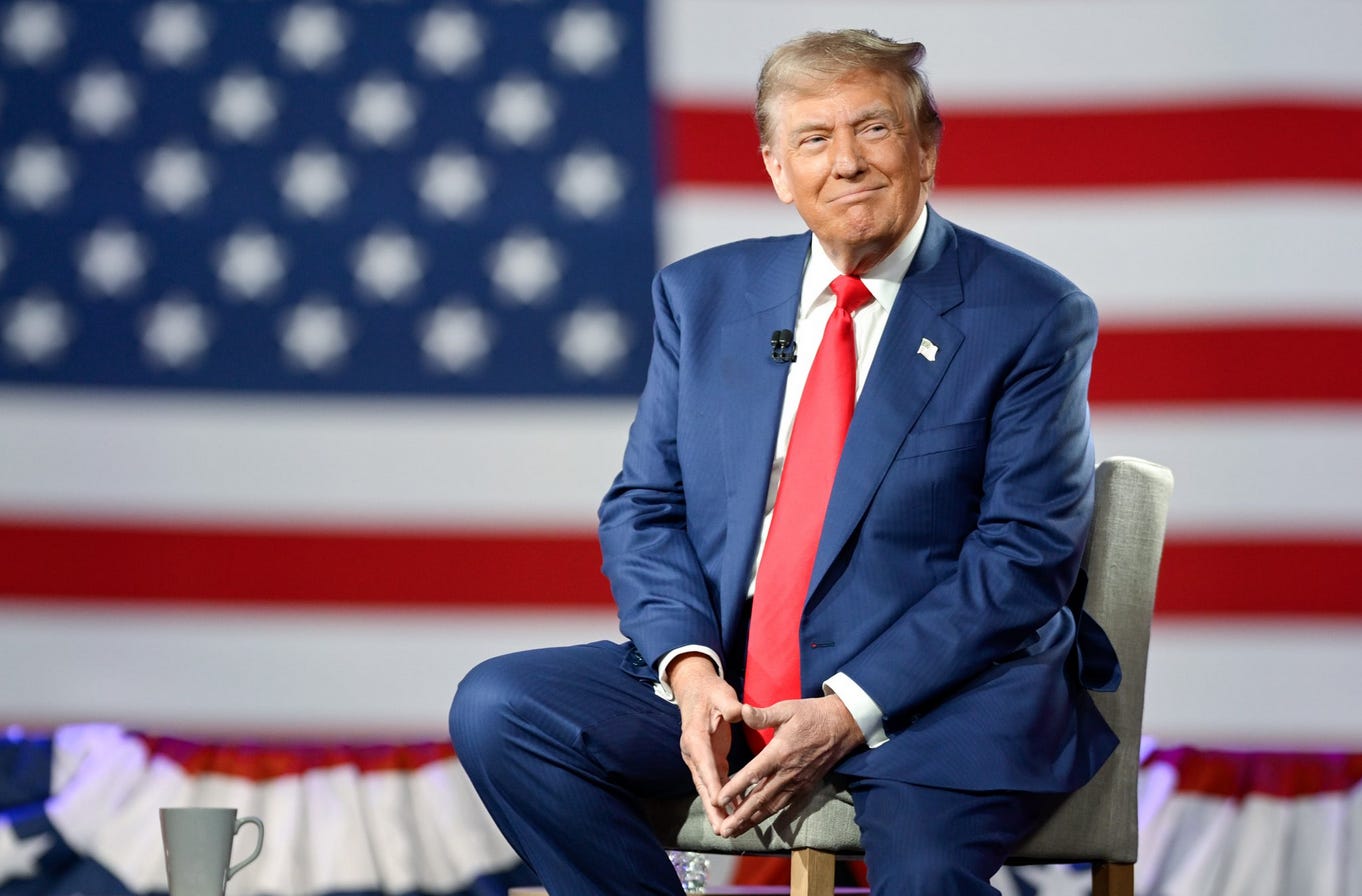

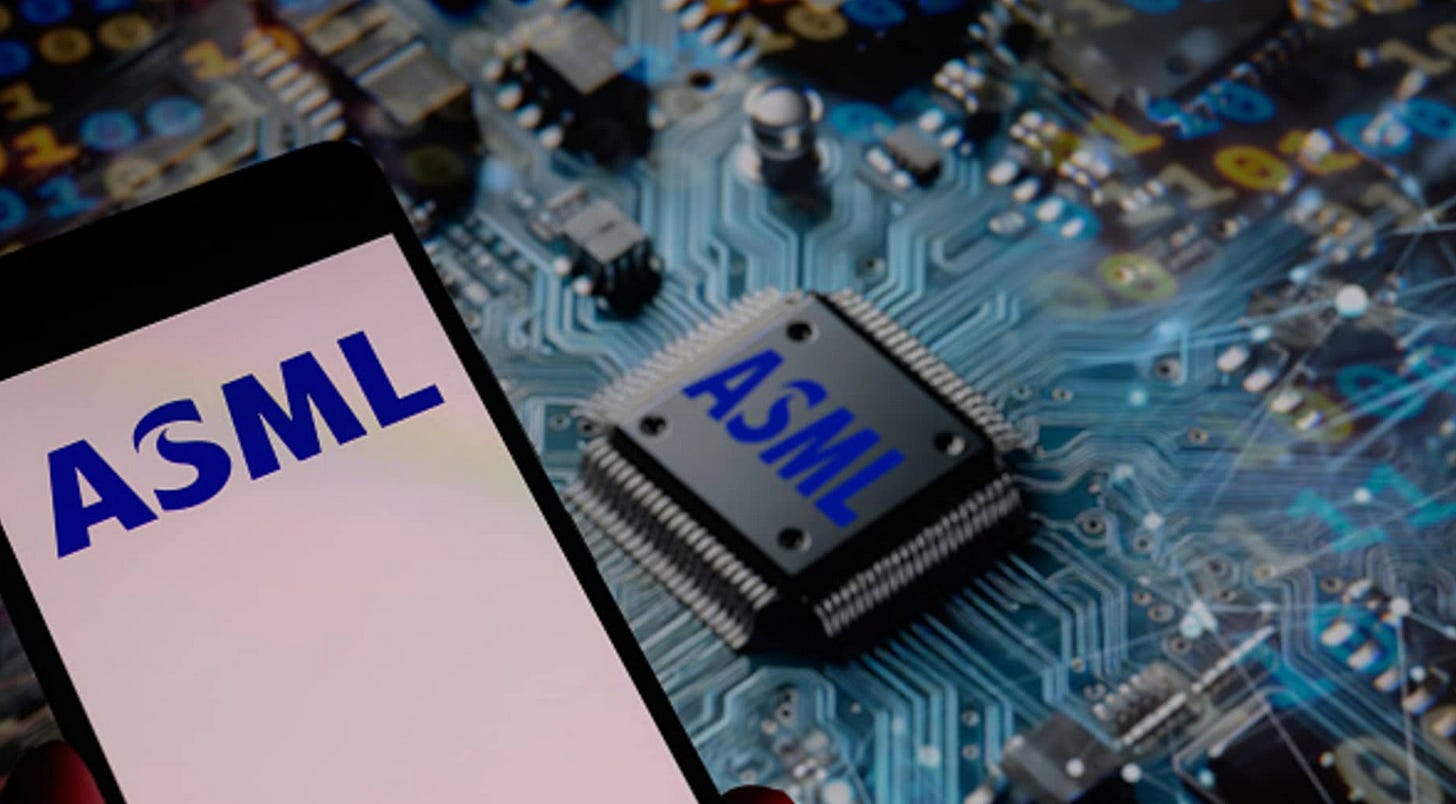
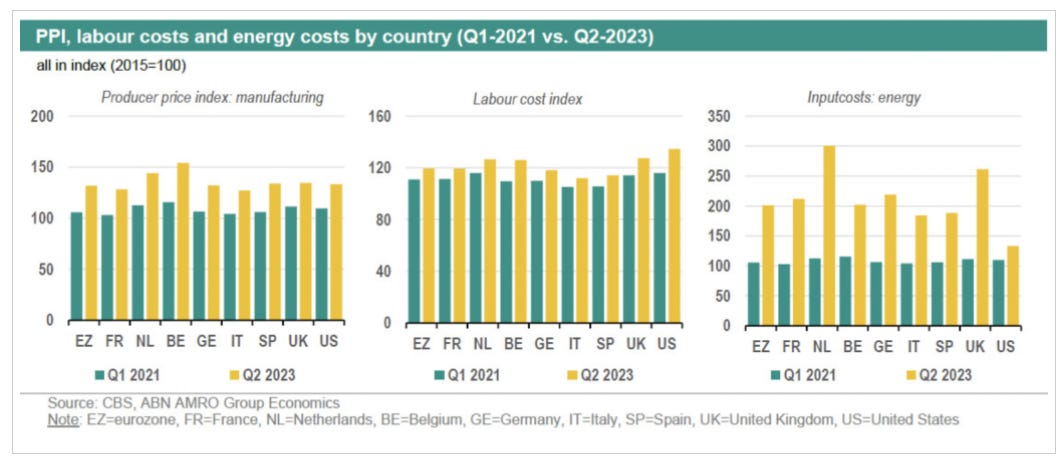
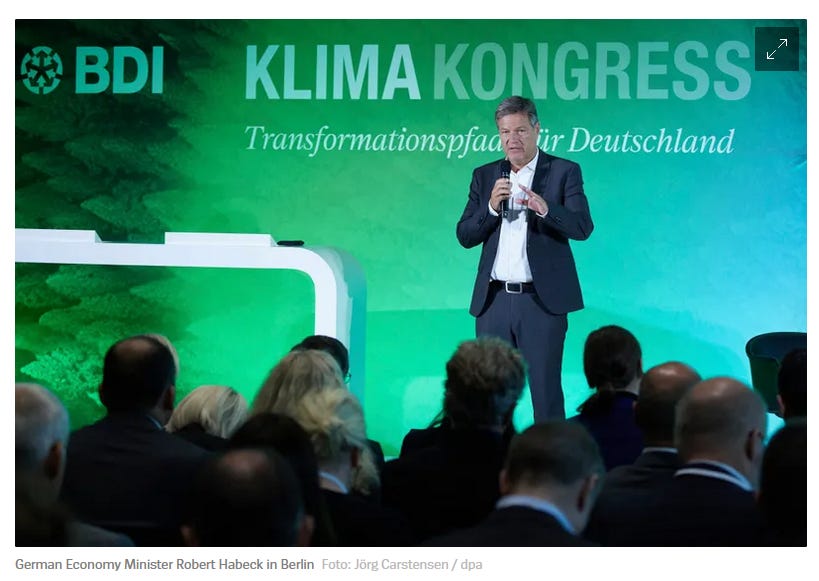
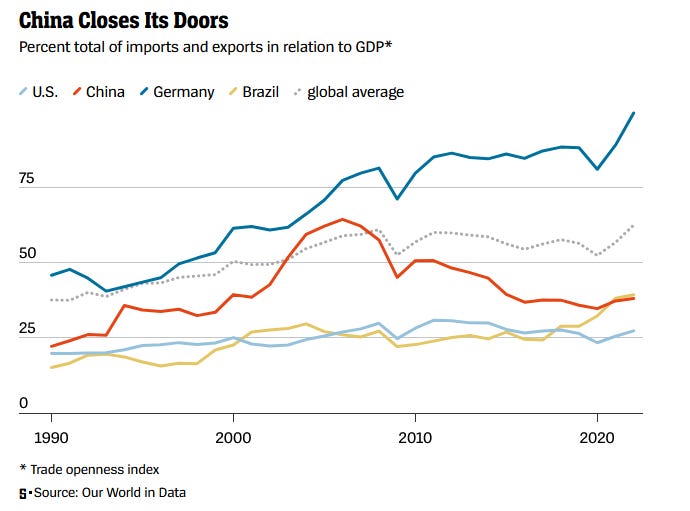
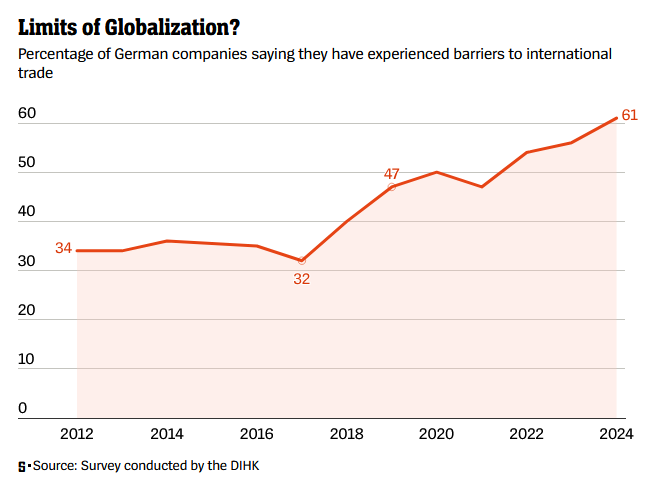

Liberalism in all its forms relied on vast reserves of pre-liberal social and cultural capital. That has been strip-mined and exhausted. What comes next is unclear.
Fukuyama has nothing to contribute on this or related subjects. He is a think tank creature...the intellectual equivalent of a crisis actor in the realm of ideas.
Hit the like button at the top or bottom of this page to like this entry. Use the share and/or re-stack buttons to share this across social media. Leave a comment if the mood strikes you to do so.
And please don't forget to subscribe if you haven't done so already!
Now off to work on a few more items....